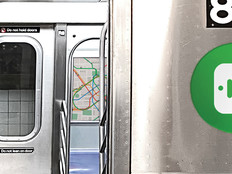The Benefits of AI in Healthcare Today
Terri Casterton of SCL Health said that her organization had begun looking at AI years ago as something that could drive efficiency, both from the patient’s perspective and for providers. Today, that’s translated into using the technology for patient histories and symptom checking.
“When patients can do this in their homes, and walk through, at their own pace, the questions that they need to answer, we tend to get even better results that can be used through AI to make a more informed decision around their diagnosis,” said Casterton, senior director of innovation and virtual health for SCL Health.
And that’s something that the providers at SCL Health have enjoyed too, she said. They understand that patients are responding to AI that constantly learns and applies the answers to get a more accurate diagnosis.
Dr. Hans Arora, a pediatric urology fellow at Ann & Robert H. Lurie Children's Hospital of Chicago, expanded on Casterton’s idea of quality care while noting that AI is really designed to enhance human intelligence rather than replace it.
“AI is being used to process things like CAT scans, X-rays, MRIs and ultrasounds to look for things like signs of cancer,” said Arora. “But what if we could make that whole step faster?”
Arora explained that images such as these could be pre-analyzed by an AI system before ever going to the radiologist, saving ample time and getting quicker, more accurate diagnoses — especially if that radiologist is physically located across the country. “That’s teleradiology and AI working together to provide better patient care,” he added.
JOIN THE CONVERSATION: Follow @HealthTechMag on Twitter for continued ATA2020 coverage.
Existing Concerns Around AI and Its Future in Healthcare
Arora said that initial hesitation about AI in healthcare revolved around concerns over whether AI would replace clinical jobs. Now, however, those concerns have transitioned to discussions about whether AI systems are safe.
“At the forefront of every one of these conversations needs to be consideration of the patient,” said Arora. “How do we protect patients’ privacy? This is the concern on every physician, every clinician’s mind. As a physician, it’s our responsibility to respect the sanctity of that relationship.”
And for patients wary of AI being used as a part of their care, Casterton said they have a right to be concerned. She said that patients deserve to be met where they are, and that the care they receive should continue to remain as personable as possible, despite AI’s role.
Lewis said this makes education surrounding the technology more critical than ever, especially with the ongoing and rapid expansion of telehealth.
“Now, with Covid-19 and everything that’s taken off with telehealth, both on the federal and state levels, you’re going to see a lot more of this,” said Lewis. “And I think this is a real opportunity for artificial intelligence to have a big impact on clinical care, especially as data comes in from all these telehealth visits from around the country and around the world.”
Keep this page bookmarked for articles from the event. Follow us on Twitter @HealthTechMag as well as the official organization account, @AmericanTelemed, and join the conversation using the hashtags #ATA2020 and #GoTelehealth.










